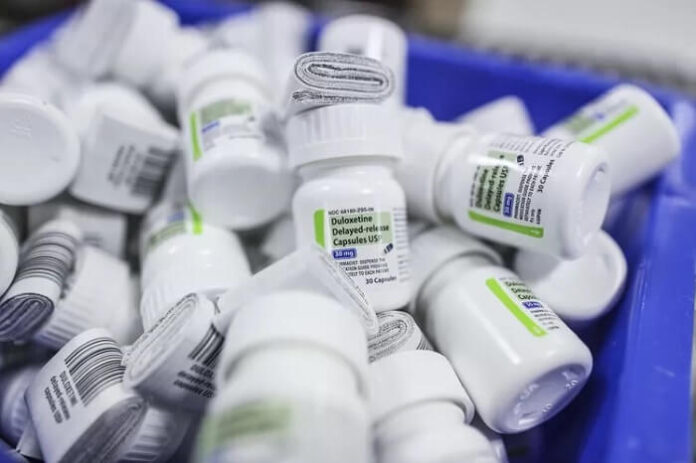The U.S. Food and Drug Administration (FDA) has announced the recall of more than 200,000 bottles of the antidepressant duloxetine after detecting higher-than-permissible levels of N-nitroso-duloxetine, a cancer-causing compound. This follows a previous recall of over 7,000 bottles of the same drug in October.
The FDA classified the recall as a Class II event, meaning the contamination could cause “temporary or medically reversible adverse health consequences,” with a low risk of severe harm. This classification is the second most critical in the FDA’s three-tier recall system.
While the exact cause of the contamination is unclear, it may have occurred during the drug’s manufacturing or storage process. Experts suggest that enhanced testing methods capable of detecting trace amounts of nitrosamines may explain why such contaminants are being found in multiple medications.
Nitrosamines, including N-nitroso-duloxetine, are commonly present in the environment, water, and certain foods. While the FDA sets safe daily intake limits, complete avoidance of nitrosamines is nearly impossible. Long-term exposure to high levels of these impurities can increase cancer risk.
Rising Pharmaceuticals, the company responsible for the latest duloxetine recall, has not responded to requests for comment.
Duloxetine, a selective serotonin and norepinephrine reuptake inhibitor (SNRI), is prescribed to treat anxiety, depression, and certain pain conditions. Patients taking duloxetine are advised not to stop the medication abruptly, as withdrawal symptoms such as nausea, anxiety, dizziness, and headaches may occur.
Pharmacology expert Jamie Alan, PharmD, PhD, from Michigan State University, emphasized that small, daily exposures to cancer-causing compounds are common, but the cumulative lifetime exposure is the most significant factor in cancer risk.
As reported by verywellhealth, the FDA advises patients concerned about the recall to consult with their healthcare provider before making any changes to their medication. Alternatives to duloxetine include other SNRIs like venlafaxine (Effexor) and desvenlafaxine (Pristiq).
For a comprehensive list of recalled duloxetine products, patients can refer to the California Board of Pharmacy’s official list.























